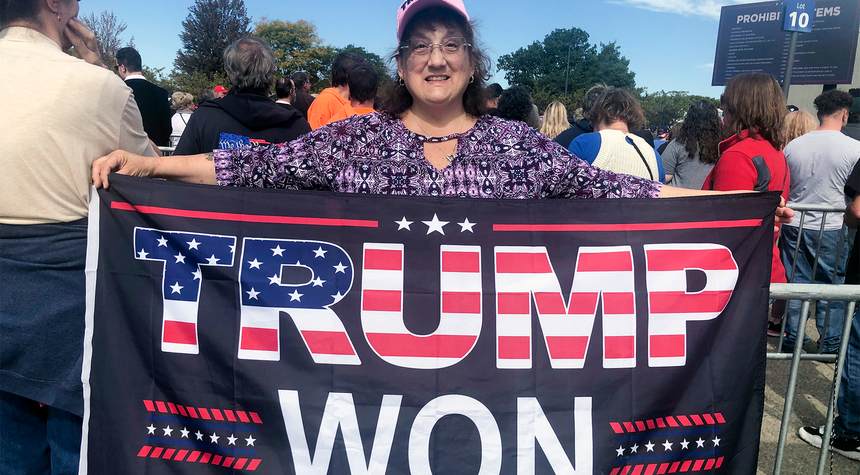In this episode of Here We Go Again, Edition #547,386…
Recently released polling results show that more than 7 of ten Americans who have followed the Hunter Biden Laptop scandal, including Twitter’s suppression of accurate reports, continue to believe the suppression altered the results of the 2020 presidential election. There’s a lot to unravel here, so buckle your seatbelt and grab the popcorn.
As Trump supporters — and no doubt Trump, himself — will likely use the latest survey as “proof” that the 2020 election was indeed “rigged” and “stolen,” as my colleague Nick Arama reported in late August, the percentage of Americans who believed the election was altered stood at 79 percent, according to the New Jersey-based Technometrica Institute of Policy and Politics.
Among the findings of the new Tipp Insights poll, half of the respondents said they would’ve voted differently if they knew the laptop story was legit. Additionally, more than two-thirds of respondents said the FBI and the intelligence community deliberately misled the public by urging Facebook and Twitter to suppress Hunter Biden stories, which the FBI at the time arrogantly deemed foreign “disinformation.” (Adam Schiff was unavailable for comment.)
The poll sampled 1,351 Americans from December 7-9 with a 4.5 percent margin of error. Among those who’ve followed the story, nearly two-thirds believe the details about Hunter Biden’s sordid lifestyle of drugs, prostitutes, and overseas business dealings — principally with Communist China — are authentic. That includes 81 percent of Republican voters and 48 percent of Democrat voters.
As noted by Daily Mail, the polling was conducted as Elon Musk began to release internal Twitter documents that appeared to prove that the Democrat National Committee and the 2020 Biden campaign, and likely FBI officials who were not authorized to do so, pressed Twitter to suppress the laptop story prior to the presidential election — in an effort to stop the re-election of Donald Trump.
As I asked in the headline, now what?
Given Trump’s response to Musk’s release of Twitter documents, as I wrote on Sunday, I’m not convinced he really wants to be president, again — period:
After two years of preaching to the choir that the 2020 presidential election was “rigged, and therefore “stolen,” Donald Trump remains a man on a mission. The question is, what mission?
What does Trump really want? In his heart of hearts, does he really want to be president, again? Or is he on a mission to right the grievous wrong he believes was committed, denying him a second term?
While far from the Lone Ranger, Trump — perhaps above everything else — must, in his mind, be right. Always. So does he remain obsessed with somehow “proving” he was right about 2020 if he wins in 2024? Or does he view 2024 as the big get-even?
The bottom line, again: Does Donald Trump really want to be president, again?
For argument’s sake, let’s assume for a minute that Trump does want to win in 2024.
In reaction to the ongoing release of internal Twitter documents, Trump bizarrely insisted that the documents serve as substantive proof that “allows for the termination of all rules, regulations, and articles, even those found in the Constitution,” irrationally “rationalizing” that either he should now be declared the “rightful winner” or a “new election” should be held — both of which would constitute a violation of the U.S. Constitution.
Just two days later, as a firestorm erupted over Trump’s controversial comments, he claimed he said no such thing as he once again blamed the “fake news” media for “lies” about the whole thing. Unforced errors like this could largely explain why the percentage of Americans who believe the election could have been swung by “all of the above” is down by more than ten percent.
Incidentally — and to further burn myself at the stake, in the eyes of some — survey respondents answer questions this way or that way for a number of reasons, as any legitimate polling expert will tell you, including how they think they should answer, to follow a particular crowd, or — an this is the big one — based on political predisposition.
OK, light the bonfire.

